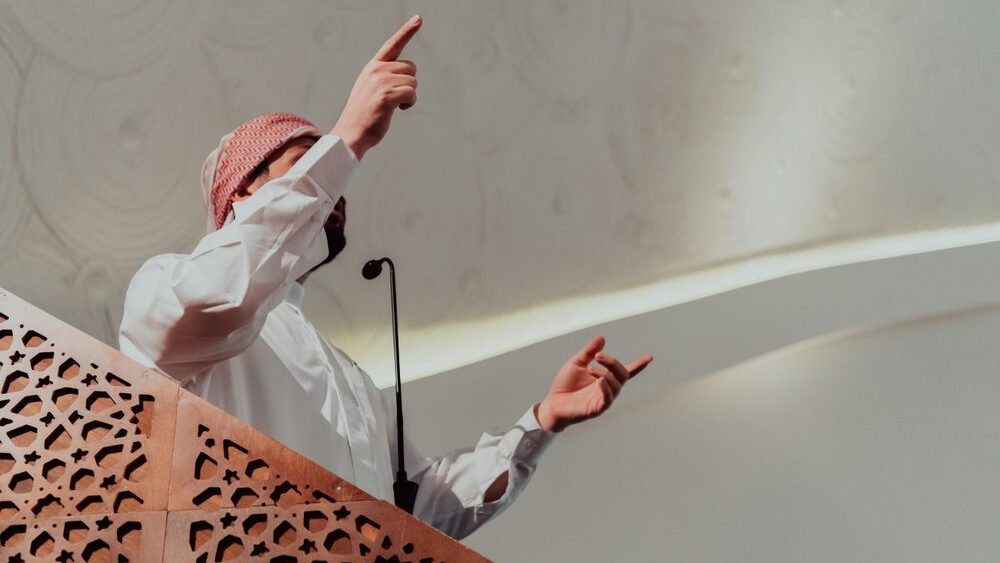France To Ban Foreign-Funded Imams To Combat Radicalism
France’s Interior Minister Gerald Darmanin has announced that foreign imams who are paid from abroad will be barred from entering France as of January 1st of this year, as the country seeks to increase the number of locally trained imams.
French broadcaster BFMTV also notes that after 1 April 2024, foreign imams already in the country will not be able to stay under the current terms of their immigration status.
The new policy is largely directed at around 300 or so imams from overseas, drawn primarily from Algeria, Turkey, and Morocco. The announcement of the new policy was sent to Turkey and Algeria.
While those residing in France will be subject to possible deportation, those who wish to remain in the country may do so if they switch to being paid by a French Muslim association, rather than receiving money associations overseas (as the policy is aimed at making sure imams are not foreign-funded and foreign-influenced).
An exception will also be made for the so-called ‘imams of Ramadan,’ a group of around 300 imams who travel to France each year specifically for the Islamic holy month.
The policy stems from promises made by French President Emmanuel Macron in 2020, when he announced a series of measures designed to combat radical Islamist extremism, including—among other proposals—ending foreign funding of mosques.
Macron hit out at “Islamist separatism” during a speech in February 2020, stating that France must uphold its republican values above all others.
He said:
In the Republic, we cannot accept that someone refuses to shake a woman’s hand because she is a woman; in the Republic, we cannot accept that someone refuses to be treated or educated by a woman; in the Republic, one cannot accept dropping out of school; in the Republic, one cannot demand certificates of virginity to marry.
Declaring “political Islam has no place” in France, Macron added that “Islamist separatism is incompatible with freedom and equality, incompatible with the indivisibility of the Republic and the necessary unity of the nation.”
In 2020, a classified document by the General Directorate for Internal Security (DGSI) was leaked to French media which revealed that as many as 150 neighbourhoods across France were “held” by those expressing radical Islamic beliefs.
Part of Macron’s attempt to combat foreign influence in the Islamic community has been the creation of the Forum de l’Islam de France (Forif), a body meant to be an overarching association of all Muslims within France (which, incidentally, sits uneasily with France’s formal commitment to secularism).
Launched in 2022, Forif has had its own problems, as few Muslims view it as truly representative of the Muslim community since its participants are all state appointees.
Macron and his government have also had difficulties getting various Islamic groups to agree to a charter of principles for Islam in France, as several groups expressed their concerns—and proposed amendments to it—in 2021.
The concept of political Islam was one of the main points of dispute as the Muslim groups involved refused to recognise the term, claiming that the definitions of political Islam were too vague and that could result in banning valid religious practices if political Islam was banned in France under the proposed definition.
“The concept of ‘political Islam’ stipulated in the article restricts the rights of Muslims or Muslim organisations to access social or political debate since they may be accused of ‘political Islam’ and prevented from exercising their democratic rights. It can also expose them to discrimination and criminalise their opinions,” the groups said at the time. This reflects the tensions involved in trying to separate out Islamic religious faith and Islamist organisations in the the context of a formally secular state.
The government has also worked to shut down radical mosques as part of its crackdown on Islamist radicalism. In response, some mosques have simply refused to close. In 2021, it was revealed that a radical Salafist mosque in the Consolat area of northern Marseille had been given repeated closure orders by the government but had resisted over a five-year period, simply ignoring the instructions being issued.
Attempts have also been made to deport foreign radical imams such as Hassan Iquioussen, who was supposed to be removed from France and sent to Morocco (though he had initially fled to Belgium). He was subsequently arrested and sent back to Morocco.
Iquioussen had been on the ‘S File’ terror watchlist and had been accused by Interior Minister Darmanin of inciting hatred and discrimination.
The radical hate preacher later attempted to sue Darmanin for defamation but a Paris court ruled that it had no jurisdiction to examine the complaint and dropped the case. Although born in France, Iquioussen had not opted to take French nationality. Since, at the time, he was an adult and not considered a French national, he could be deported.
The case of Iquioussen shows the French state getting into difficulty when it makes partial compromises on its historical commitments to both free speech and secularism.
Chris Tomlinson is a British-Canadian journalist for The European Conservative. He is focused on migration, European politics, far-left extremism, and Islamic terrorism. Formerly of Breitbart News, he has covered stories from the migration crisis to Brexit and the rise of populism and traditional conservatism across Europe. On Twitter, he is @Tomlinsoncj.
Source: European Conservative




